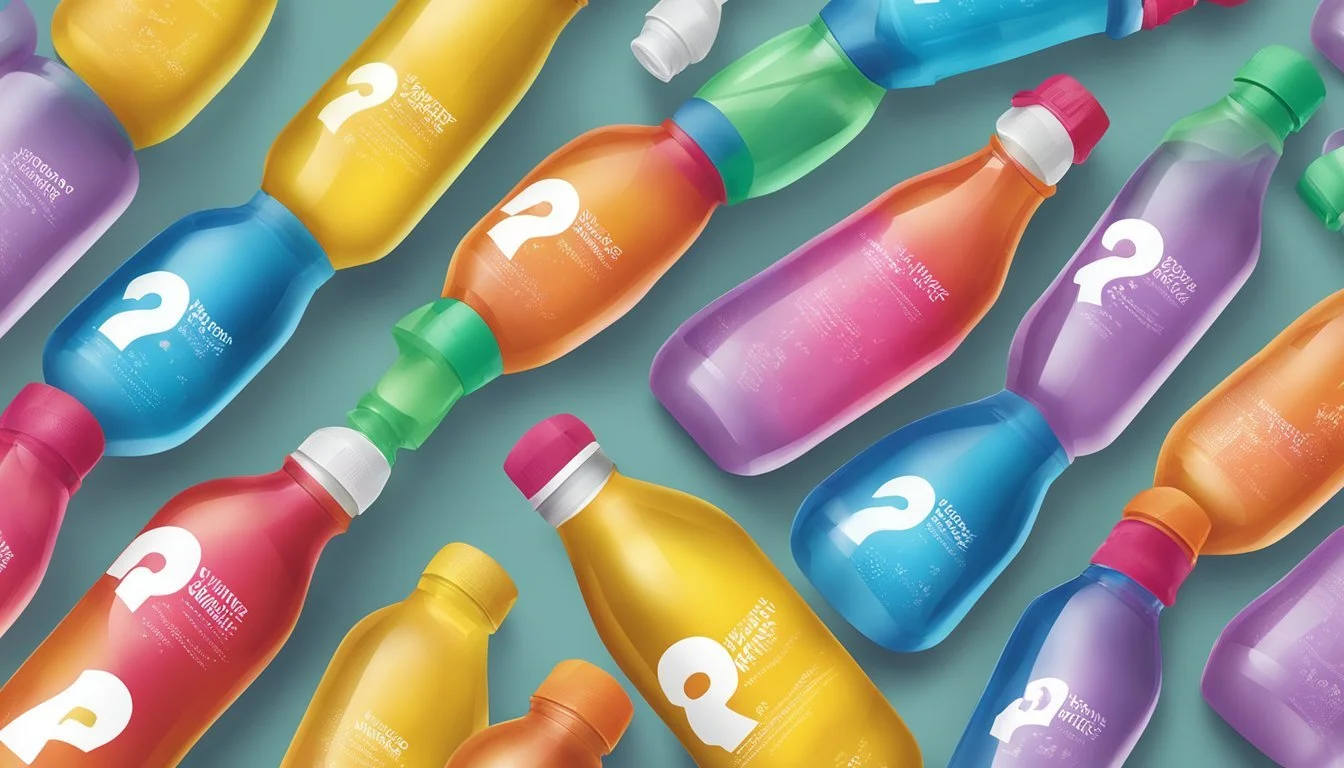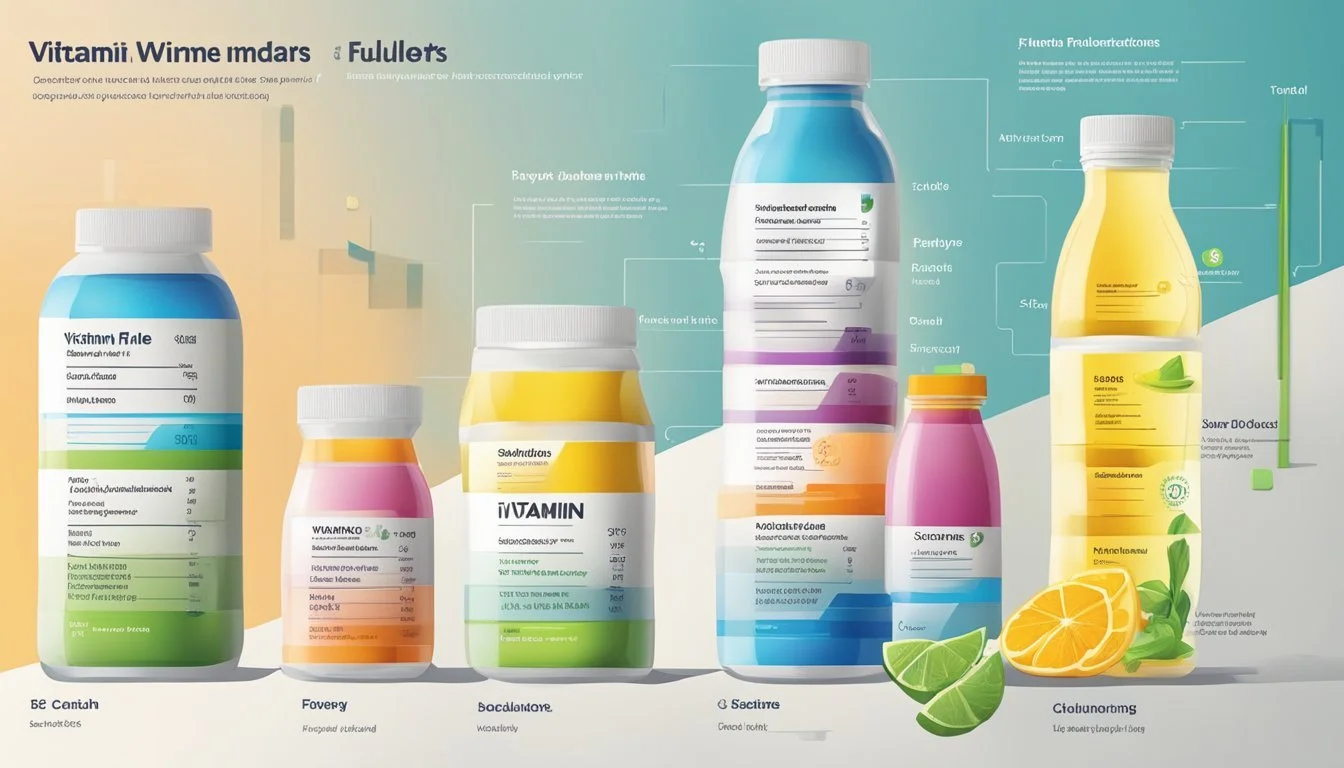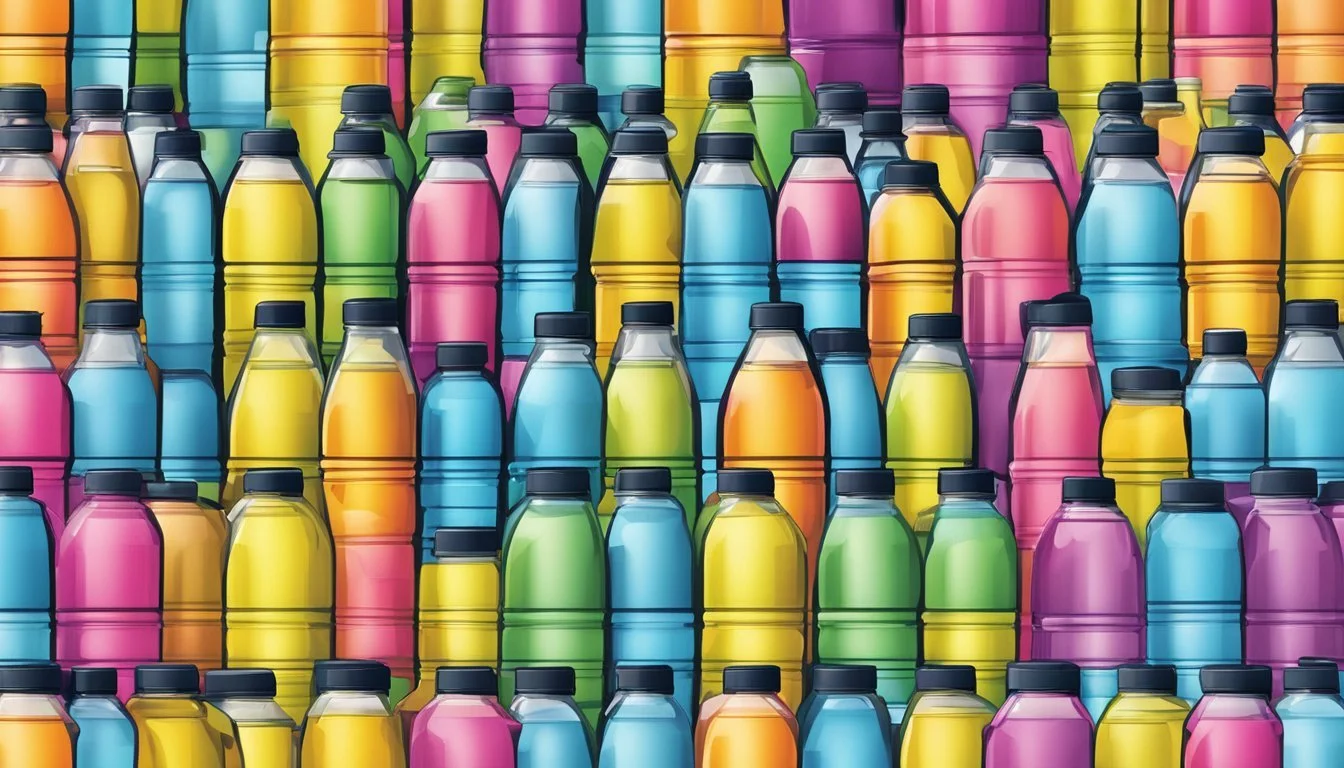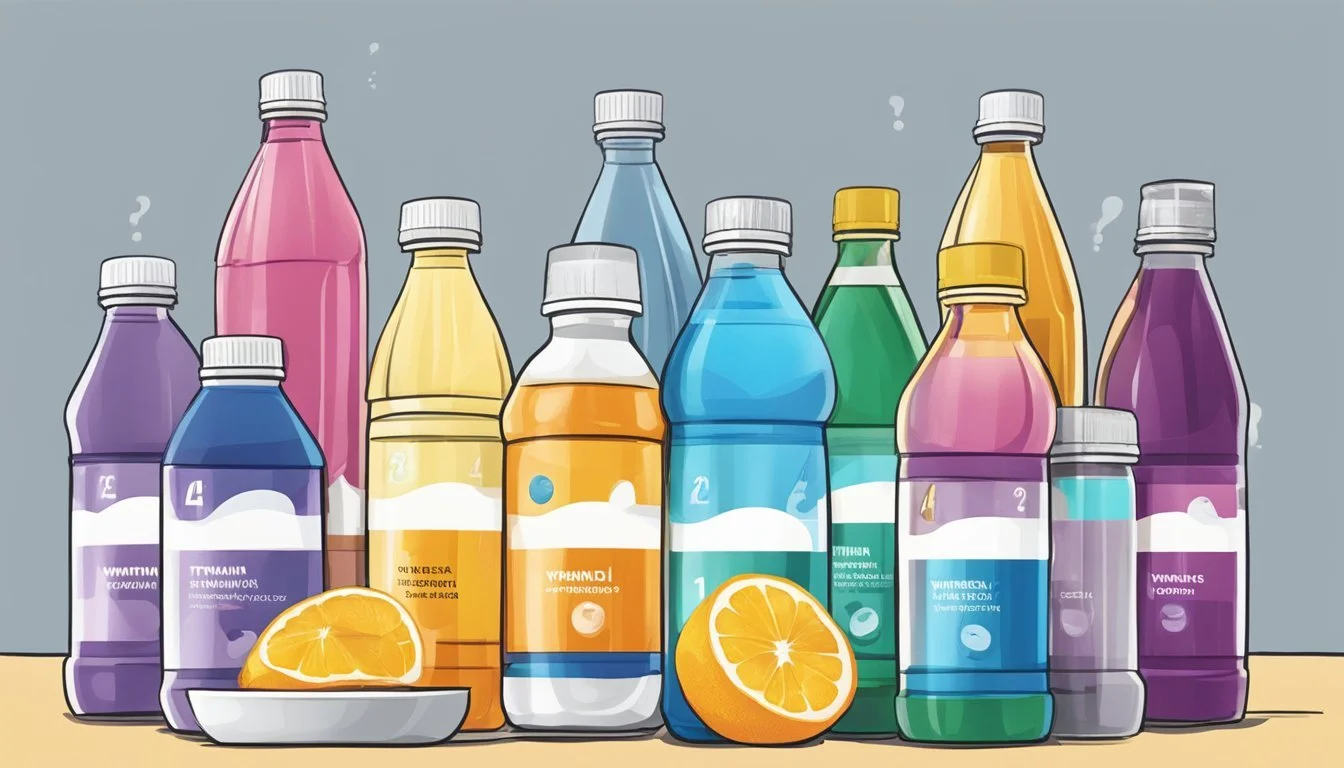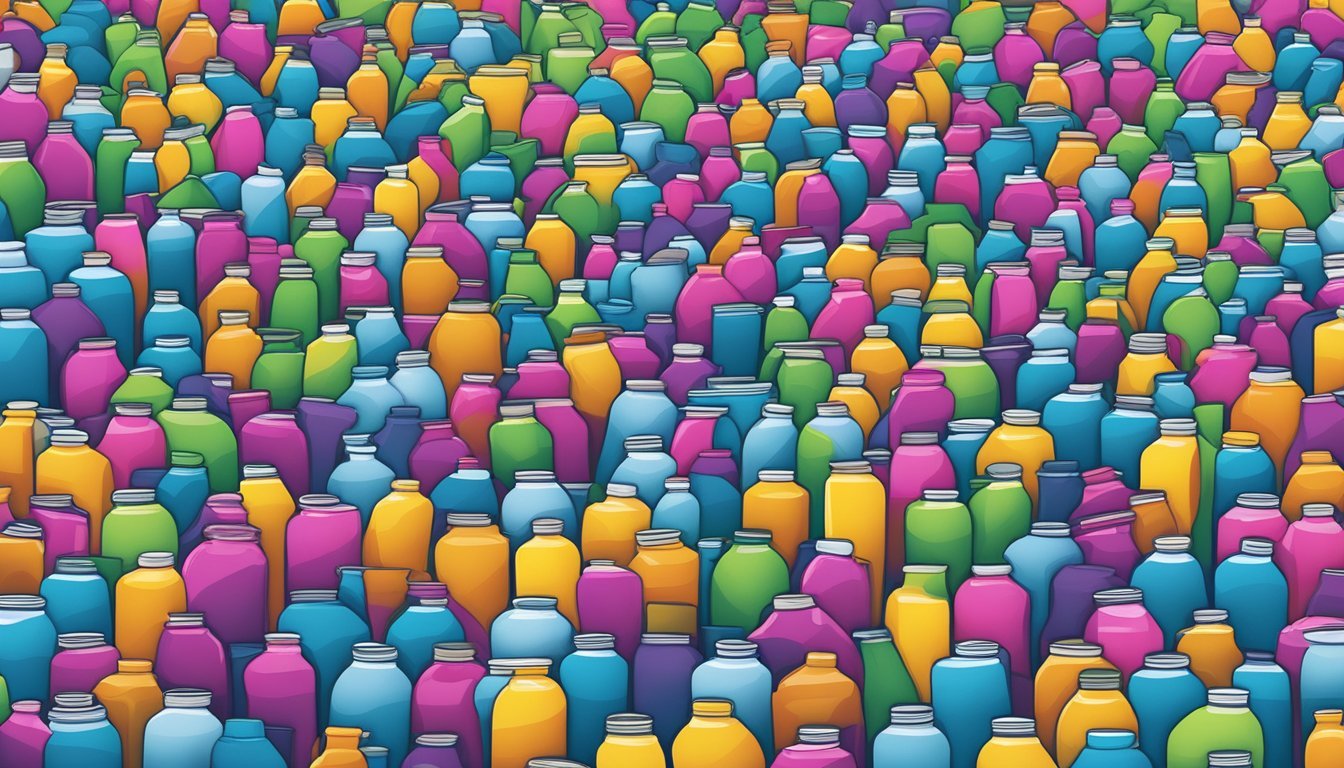How Many Bottles of Vitamin Water Per Day Is Too Much?
Understanding Safe Consumption Limits
Determining the appropriate amount of vitamin water to consume daily involves a nuanced understanding of individual hydration needs and the role of vitamins in the human diet. Vitamin water typically combines the hydrating benefits of water with added vitamins and electrolytes, which can assist in replenishing nutrients lost during exercise or throughout a busy day. However, it's crucial to be aware of the balance between necessary hydration and the potential for excessive intake of added vitamins and sugars often found in these beverages.
Hydration is a key aspect of good health, with general guidelines suggesting around 3.7 liters of fluids for men and 2.7 liters for women per day from all sources, including food and various beverages, according to the National Academies of Sciences, Engineering, and Medicine. While vitamin water can contribute to this fluid intake, it should not be the sole source. The body's requirements for vitamins vary by individual, and excess consumption can potentially lead to an imbalance or even a surplus of certain vitamins, especially when considering one's entire diet.
Consumers should be mindful of their total daily fluid and nutrient intake and consult with a healthcare professional to understand their specific dietary needs. It is also advisable to consider the sugar content in vitamin water, as excessive sugar consumption can have negative health effects. Balancing intake with plain water and a varied diet is key to avoiding the pitfalls of overconsumption while still reaping the benefits of vitamin-enhanced water.
Understanding Vitamin Water
Vitamin Water is a popular beverage that combines water with added vitamins and minerals, appealing to those who seek a nutritional boost along with hydration. Typically, these beverages include a variety of vitamins such as Vitamin C, B vitamins, and occasionally electrolytes like sodium and potassium that are essential for hydration and replacing what is lost during exercise.
The appeal of Vitamin Water lies in the combination of hydration from the water and supplements in the form of added vitamins and minerals. Many of these beverages also contain electrolytes, which are thought to aid with hydration more effectively than plain water, especially after intense physical activity.
However, Vitamin Water can also contain added sugar, with some brands carrying around 30 grams per bottle. High calorie content and excess sugar have been linked to various health issues when consumed in large amounts. Some Vitamin Water products use artificial sweeteners as a low-calorie alternative to sugar.
Comparatively, nutritionists often recommend getting nutrients from whole foods rather than fortified beverages. Whole foods contain a variety of essential vitamins, minerals, and other nutrients in forms that the body can more readily use. Moreover, simple plain water is generally the best option for hydration for most individuals.
Some varieties of Vitamin Water may include caffeine for an energy boost, although caffeine content varies by product. Consumers should check the label for these additions if caffeine intake is a concern.
In summary, while convenient, Vitamin Water should not replace water or a diet with fruits and whole foods that naturally contain the nutrients the body needs.
Daily Water and Fluid Intake Recommendations
Proper hydration is crucial for maintaining bodily functions, and the amount of daily water and fluid intake varies by individual needs.
For Males: Scientific studies, including those from the National Academies of Sciences, Engineering, and Medicine, recommend that men consume about 3.7 liters (125 ounces) of fluids per day.
For Females: For women, the advised amount is approximately 2.7 liters (91 ounces) of fluids daily.
These fluid intake recommendations encompass all sources, including water, beverages, and food. On average, food provides about 20% of total fluid intake, with the remaining 80% ideally coming from water and other drinks.
Importance of Hydration
Maintains body temperature
Facilitates waste removal
Aids in digestion
Improves physical performance
Risks of Dehydration
Impaired mood
Reduced cognitive and motor skills
Overexertion during physical activity
Assessing Fluid Needs
An individual's fluid needs can be influenced by factors such as age, sex, body weight, and environmental conditions like temperature and humidity. Active individuals and those in hot climates may require more fluids to stay hydrated.
Signs of Adequate Hydration
Clear or light yellow urine
Infrequent thirst
It is essential to listen to one's body and consume fluids consistently throughout the day for optimal hydration. Exceeding these recommendations without necessity may lead to an imbalance in electrolytes, so moderation is key even with vitamin-enhanced waters.
Health Effects of Vitamin Water Consumption
Vitamin Water is marketed as a healthier hydration choice, boasting added vitamins and electrolytes. However, the implications of its consumption on health are nuanced, necessitating an examination of both its benefits and potential risks.
Benefits of Adequate Hydration
Proper hydration is essential for maintaining the function of every system in the body, from regulating body temperature and keeping joints lubricated to delivering nutrients to cells. Consuming beverages like Vitamin Water can contribute to maintaining hydration levels, particularly for individuals who find plain water less palatable.
Risks of Overconsumption
Excessive intake of Vitamin Water can lead to health concerns, mainly due to its sugar content. Overconsumption may increase the risk of weight gain, blood sugar spikes, and obesity-related diseases. It is crucial to monitor the quantity ingested to avoid surpassing daily recommended amounts of sugar.
Impact of Excess Sugar and Additives
A single 20-ounce bottle of Vitamin Water may contain around 31 grams of added sugar, approaching or exceeding the American Heart Association's daily sugar intake recommendations. Long-term consumption of high-sugar beverages can impact blood sugar levels and contribute to obesity and related health issues.
Assessing Vitamin and Electrolyte Balance
Vitamin Water can deliver essential vitamins and electrolytes lost through sweat during exercise. However, the kidneys regulate electrolyte balance by filtering blood, and excessive consumption can burden them, potentially leading to imbalance and adverse effects like kidney stones.
Influence of Exercise and Physical Performance
While hydrating with Vitamin Water during physical activity can help replace lost electrolytes and maintain energy levels, it is paramount to tailor the intake to the intensity of the exercise. Athletes or those engaging in prolonged activities may benefit from the electrolytes, but it is important not to consume in excess, as overhydration can lead to conditions such as hyponatremia.
Lifestyle Considerations and Water Needs
The daily water intake varies widely due to multiple factors, such as individual dietary patterns, the prevailing environmental conditions, physiological differences including gender and body composition, as well as specific needs related to extreme environments. It is essential to understand that excessive consumption of products like Vitamin Water could lead to an imbalance, especially if not adjusted for these lifestyle considerations.
Influence of Diet and Nutrition
Individual diets, rich in fruits, veggies, and lean proteins, contribute not only nutrients but also water. For those consuming a balanced diet, a portion of their hydration needs is met through the water content in these foods. Conversely, diets high in sodium or caffeine from sources like tea or coffee may increase fluid needs due to their diuretic effects.
Environmental and Climate Factors
Climatic conditions have a significant influence on hydration. High temperatures and humid climates escalate sweating, ramping up the necessity for increased water intake to prevent dehydration. Conversely, cold environments might decrease the sensation of thirst but not the actual need for water.
Role of Gender and Body Composition
Males and females have different hydration needs due to body composition variations. Generally, men require more water — about 3.7 liters daily, while women need about 2.7 liters. This requirement can change with factors like pregnancy and breastfeeding in women, and overall, everyone's needs are proportional to their body weight and composition.
Hydration Strategies for High-Altitude and Extreme Conditions
At high altitudes or during intense exercise, the body loses more water through increased respiration and perspiration. Individuals in these situations typically require a higher intake of water and may need to monitor their hydration levels more closely to combat dehydration.
Guidelines for Consumption
When considering the consumption of Vitamin Water, one must take into account the balance between proper hydration and nutritional intake. The average daily fluid intake recommended for adults by health authorities, including both beverages and food, is approximately 15.5 cups (3.7 liters) for men and 11.5 cups (2.7 liters) for women. This fluid intake helps maintain weight balance, prevents dehydration, and regulates sodium levels in the body.
Given the high sugar content, with a 20-ounce bottle of Vitamin Water containing around 31 grams of sugar, individuals should be cautious not to exceed the American Heart Association’s recommended maximum sugar intake of 38 grams per day for men. Consuming more than this can lead to excessive calorie and sugar intake, making Vitamin Water an expensive option compared to more essential beverages like water, milk, or natural juice.
Here are some key points to consider:
Hydration Needs: Fluid intake must match personal hydration needs, which vary due to factors like activity level and climate.
Nutritionist Advice: Consultation with nutritionists can ensure that beverage choices align with health goals.
Water Intake: Prefer water to meet most daily hydration needs to avoid excessive intake of added sugars found in Vitamin Water.
Sports Drinks Alternative: While sports drinks and Vitamin Water can be beneficial for fluid loss after intense physical activities, they can contribute to unintentional overconsumption of sugars.
In summary, individuals should monitor their intake of Vitamin Water, striking a balance with other fluids throughout the day to avoid excessive sugar and calorie intake. Beverage selection should be informed by one’s overall nutrition and hydration requirements.
Conclusion
Moderation is key when consuming Vitamin Water. While it can contribute to hydration and offer some health benefits due to its vitamin content, one must account for the sugar and calorie content. Individuals should balance their fluid intake between Vitamin Water and plain water.
Individuals often reach for Vitamin Water to avoid being dehydrated, but overconsumption may lead to excessive sugar intake. The American Heart Association suggests a maximum of 38 grams of added sugar per day for men. A single 20-ounce bottle of Vitamin Water may contain about 31 grams of sugar, closely matching daily recommended limits.
Optimal fluid intake varies individually.
Plain water is always the best choice for hydration without added calories or sugars.
For those seeking additional vitamins, a balanced diet is preferable.
It is recommended to enjoy Vitamin Water sparingly while primarily hydrating with plain water to avoid the risk of excessive calorie and sugar consumption. Consultation with a healthcare provider is advisable for tailored advice on hydrating strategies.


